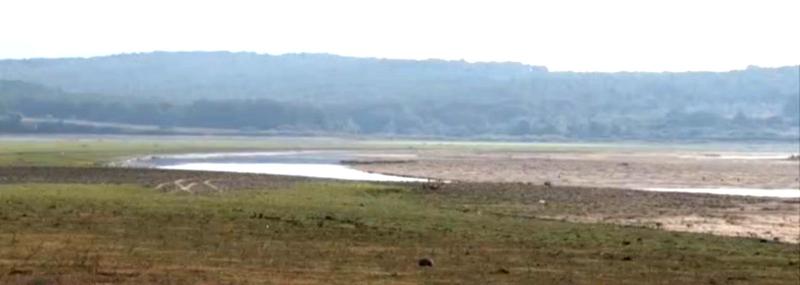There is no risk for the eco balance of the “Ivaylovgrad” Dam
23 Aug, 2021 | 16:38The Basin Directorate “East Aegean Region”-Plovdiv and RIEW-Haskovo inspected the “Ivaylovgrad” Dam on order by the MOEW on Sunday upon a signal through the “green phone” for dead fish in the water body. The inspection found no water pollution. As the level of the dam decreases and due to its specific relief, small shallow areas are formed, where fish passages remain locked. Low water levels and low oxygen levels are causing fish death in these areas.
In relation to this dam’s water management, the Ministry notes that in early June the Minister of Environment and Water Asen Lichev ordered the repeal of the instruction by the previous government to keep the volume of the Arda cascade dams constantly at 20% free capacity. The “Ivaylovgrad” Dam is part of the country's energy system and it is not involved is any priority supply for drinking water and household needs under the Water Act. We should also take into account the load on the energy system during these months of high temperatures.
In addition, and in response to fish farmers’s concerns, there are two emergency zones in the “Ivaylovgrad” Dam for relocating fish cages in emergency cases. The Executive Agency for Fisheries and Aquaculture has also been informed about this.
Last but not least, Bulgaria has obligations to provide irrigation water to neighboring Greece - these derive from the Agreement for Settlement of Outstanding Financial Issues and Development of Economic Cooperation between the People's Republic of Bulgaria and the Kingdom of Greece (promulgated in State Gazette No. 87 of 3rd November 1964). According to this Agreement, every year in the period May-September through monthly schedules additional water volumes are released from the “Ivaylovgrad” Dam for irrigation in Greece. Bulgaria is obliged to supply Greece with regulated water from the Arda River for irrigation of lands on Greek territory every year in the amount of 186 million cubic meters per annum with 85% security for a period of 60 years, i.e. until 2024.
